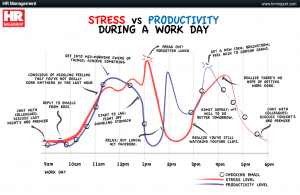Content marketing is essential to your company’s online success, but it isn’t always easy to formulate an initial strategy.
Like all things marketing, what you choose not to do can be the most essential part of your strategy.
It all comes down to asking yourself and your team questions to define the scope of your upcoming content journey.
These six simple scoping questions will help you refine your content strategy, solve the problem, and bring it to its true essence.
Here is our customized content strategy scoping questions list.
- Who is My Target Audience?
- What is The End Goal for My Audience?
- What Do They Need to Know and Feel?
- What Channels Fit My Audience?
- What Type of Media Should We Use?
- Is Our Message Consistent?
- Wrapping It Up
Who is My Target Audience?
Defining the target audience is too often undervalued as it is easy to assume who comprises our target audience.
Many will say, “Well, our target is clearly the people that buy from us, and we have past research to go from.”
There is no guarantee that those who were your target audience in the past are the same now.
Audiences and their needs change.
Much of your content marketing efforts is about creating an ongoing and testable hypothesis that you should never fear to change as new evidence of what is effective comes to light.
While you may have a defined customer base, that doesn’t mean that there isn’t potential to attract additional demographics or that the buyer persona might have changed.
Ongoing experimentation, customer interviews, and analytics reviews make this a question not just asked when defining the strategy but also repeatedly asked throughout its execution.
Your goal is then to continuously update who your audience is as you go along.
What is The End Goal for My Audience?
Ultimately, you want an audience that arrives at your website to take specific actions that are considered conversions.
More than likely, your conversion goals follow a specific path that constantly increases the value of your customer.
Knowing that hierarchy of conversions, whether they read an article, download an e-book, or make a purchase, also requires defining the key performance indicators (KPIs) that tell you if your strategy is working accordingly.
A strategy without defined critical success factors lacks clarity and won’t meet your company’s priorities.
The number of marketing metrics you can employ is immense, but not all of them apply to all campaigns.
All KPIs are metrics, but not all metrics are KPIs.
Having the end goal defined before implementation helps prevent confusion.
Knowing what you want your audience to do and how you intend to measure what they are doing, will help you reach success.
What Do They Need to Know and Feel?
Reaching your defined end goal requires a strategy that appeals to a mix of emotion and logic. People operate and act based on both.
Your strategy needs to convey factual information and show leadership, but it must also convey a feeling that ultimately makes your audience feel good.
Your brand strategy comes into play and needs to be well defined; always ask yourself: “How do we make people feel, and how do they perceive the brand?”
Your brand strategy should:
- Define your style
- Convey a personality
- Define differentiators
- Establish a higher perceived brand value
Consider your content strategy a journey of persuasion that leads customers down the funnel to the conversion point.
What Channels Fit My Audience?
There is no lack of available channels to implement your content strategy. Throw out those that are unlikely to reach your target audience.
B2B companies are not necessarily finding clients that are looking for business solutions on Instagram.
It would be better for a B2B company to embrace a robust SEO strategy, including search advertisements.
On-page content that attracts potential clients might impact establishing your company’s thought leadership.
If you are targetting Gen Z consumers, use platforms like TikTok and Instagram.
If you sell high-end watches for more mature customers, Facebook could be the best way to go.
What Type of Media Should We Use?
Video content might be appropriate for one offering and simple text for another.
It all depends on your defined goal and the customer you’re trying to attract.
Podcasts could effectively drive business customers to your website and require video and audio content.
A monthly message delivered via email indicates a need to develop strong copy and text content.
Is Our Message Consistent?
Every part of your content strategy needs to anticipate that a customer embarks on an online journey to find you, so all channels need to be considered as a whole and have a consistent message.
No one would ever have a billboard strategy with inconsistent messaging for their audience driving down the freeway.
Just as the family in that car is on a journey, so are your customers.
One of your team members may be measuring LinkedIn success and another may be measuring search performance, each defining the best strategies for each channel, but the message needs to remain consistent.
Your strategy needs to be curated and measured as a whole.
Wrapping It Up
A strong strategy starts with a tailored plan, and the questions above are the basics you should always ask yourself when putting your strategy together.
Remember, these are not questions you only need to ask yourself once, but continually throughout the lifecycle of the strategy.
Always keep asking if your message is consistent, who your audience is, if your channels are appropriate, if you are finding the sweet spot between facts and emotions, and if your strategy is meeting your end goal.
Content marketing is a cohesive plan, always measured as a whole. When done correctly; it could be your most valuable marketing tool.
Rock Content comprises the best people to help you define the scope of your strategy and support your company and achieve its goals.
Reach out to Rock Content today to develop a long-term content strategy that will result in more conversions for your company.

![[WA] Ultimate Content Marketing Kit](https://rockcontent.com/wp-content/uploads/2022/08/Content-Marketing-Kit-750x200px.jpg)







